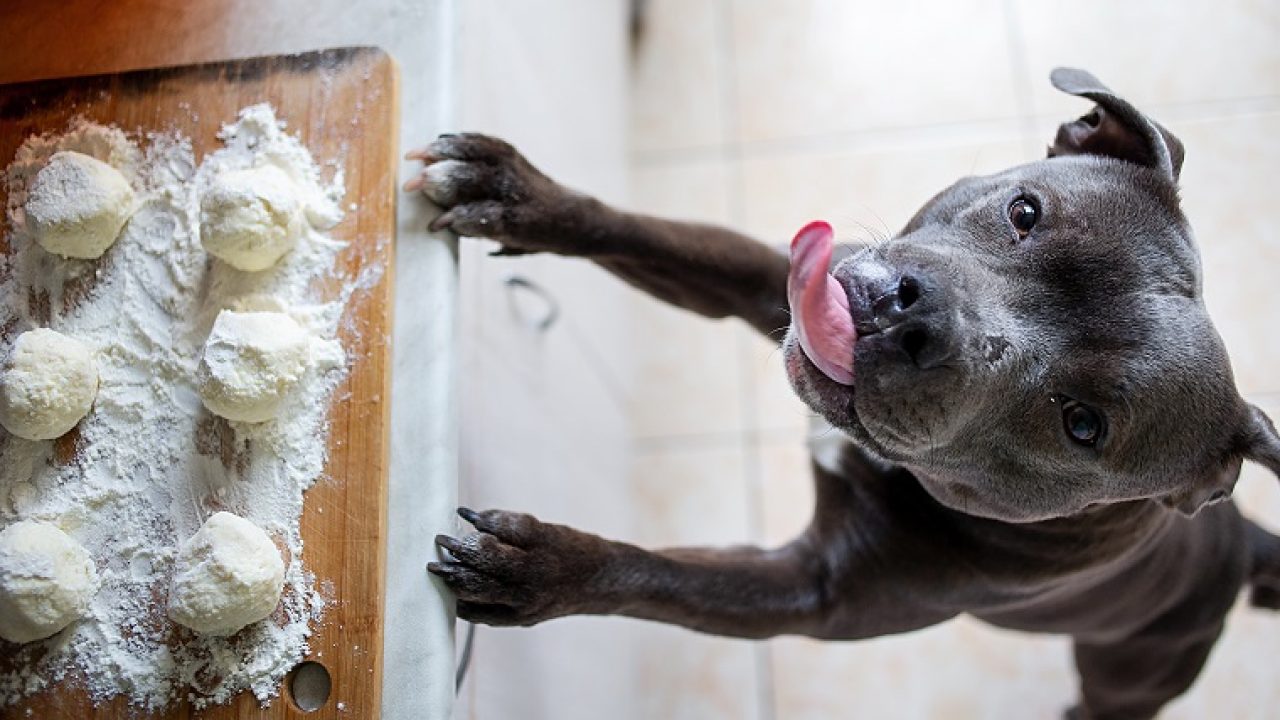Carter, my former dog, was always the subject of jokes about his love for carbs. He was obsessed by bread. He would always choose a dinner roll over a piece of meat if you offered him the choice. It was his love of bread which got him in trouble five years ago.
He came to me late at night with pizza dough in his mouth. He had managed to remove it from the counter of the room next door without making any noise. The dough was in a 5-pound glass bowl, behind the coffee machine. I don't know how he did it so quietly.
When I noticed, he had already consumed a dough lump the size of several softballs. We went to the vet for an emergency. …..Fortunately, everything was fine. I can't understand how he got that ball of dough.
Before that night, I didn't know how dangerous yeast is for dogs. It was a lesson learned.
The consumption of bread dough or yeast can be deadly to dogs
You probably have some dry yeast in your kitchen if you bake a lot. This is used in the baking of most breads and can be dangerous to our pets.
Can dogs eat yeast? No. The answer is no.
When a dog consumes yeast, their stomach expands. This increase in size and pressure can cause bloat, a life-threatening condition that rapidly progresses.
Alcohol poisoning can occur in dogs if they eat yeast. During the fermentation , yeast produces ethanol that gets absorbed in their bloodstream.
Alcohol poisoning and bloat can both be fatal in dogs who eat yeast.
The expansion of yeast can cause bloat in dogs
You've probably used yeast to bake before and know how it works. When you make dough, if you let it rest for a few hours, it will easily double its size.
This growth is the reason why yeast can be so dangerous for dogs. The yeast will continue to grow even after the dog has eaten it.
The inside of your dog is the ideal place for yeast to grow. The yeast growth in a dog's body can lead to bloat. This is a life-threatening condition that progresses rapidly.
Gastric Dilatation Volvulus, or bloat in dogs is a medical crisis. If you suspect that your dog may have ingested some yeast, take him to the vet immediately.
Even after treatment, 25-33% dogs with GDV will die. Bloat in Dogs – Pet Education
Dogs that are bloated have a stomach filled with gas they can't expel. The pressure and size of the expanding stomach can cause reduced blood flow and damage to the cardiovascular system.
The symptoms of Bloat in Dogs
Some of these symptoms may not be present in all dogs, while others may look like general discomfort. However, due to its seriousness, you should take your dog to a vet if you think they might have bloat. Bloat can cause the following symptoms:
- Bloated abdomen
- Drooling
- Restless & anxious behavior
- Vomiting attempts
- Heavy or rapid panting
- Shallow breathing
- Pacing
Bloat is not treatable at home. Dogs that develop GDV require veterinary care. If the stomach becomes so dilated that it twists (volvulus), dogs can go into shock, and even die within hours.
The most important factor for a positive prognosis is immediate treatment. Negative prognostic factors include a delay of more than six hours in treatment, the presence or peritonitis or sepsis or hypotension or diffuse intravascular coagulation, and a delay greater than six. – Gastric Dilatation Volvulus, Wikipedia
Alcohol poisoning can be caused by Yeast in dogs
If bloat isn't bad enough, dogs who eat yeast can also suffer from alcohol poisoning. Alcohol poisoning can occur when a dog consumes yeast.
The yeast produces ethanol when fermenting uncooked dough. This ethanol is absorbed rapidly by dogs.
Alcohol poisoning in Dogs can lead to tremors and disorientation as well as hypothermia.
Alcohol poisoning in Dogs: Symptoms
Alcohol poisoning symptoms can be very different depending on how much alcohol your dog consumed compared to its weight and whether their stomach was empty or full. The symptoms of alcohol poisoning can appear in just a half-hour if your dog's stomach is empty. However, if the stomach is full it can take as long as three hours.
Alcohol poisoning can cause the following symptoms in dogs:
- Vomiting is not a good idea
- Drooling
- Staggering
- Hyperactivity
- Weakness
- Panting
- Reflexes are reduced
The signs of advanced ethanol toxicity include depression, slow breathing, heart rate and respiration, metabolic acidosis (an increase in body acid) and heart attacks. Untreated, the dog may die. – Ethanol Poisoning In Dogs. PetMD
The following is a list of preventions.
Be aware of your dog's location while you are cooking. This is especially important if your dog likes to surf the counter. Make sure that your dog cannot reach the dough if you are going to let it rise.
The best way to prevent dogs from stealing uncooked dough is not to leave it unattended.
Remember that yeast ingestion can be deadly to dogs. You should take your dog to the vet if you suspect that they have eaten yeast.
